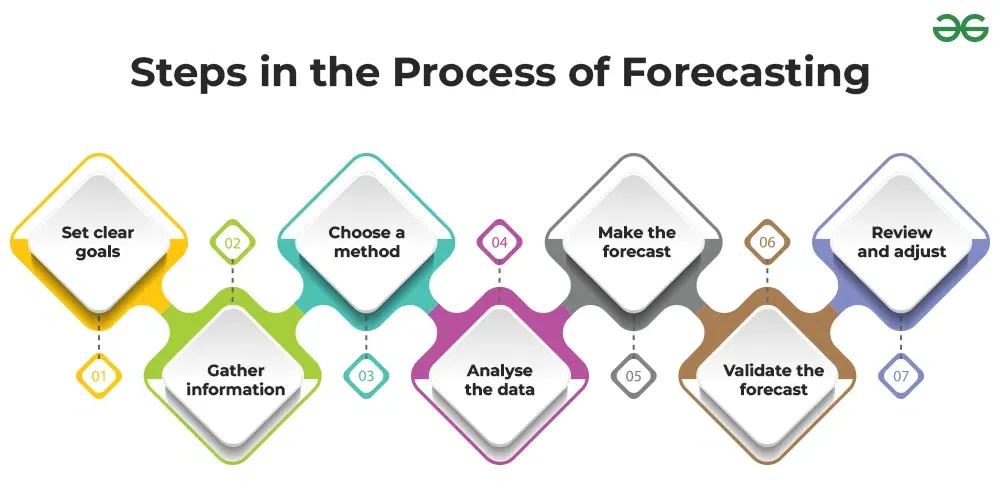Mastering the Art of Financial Forecasting for Business Growth

Financial forecasting plays a crucial role in the success and growth of businesses, particularly for startups and small enterprises. It provides a road map for future financial planning, helps in making informed decisions, and enables businesses to allocate their resources effectively. In today's competitive business landscape, mastering the art of financial forecasting is essential for long-term sustainability and profitability.
Understanding Financial Forecasting
Financial forecasting involves estimating future financial outcomes based on historical data, market trends, industry analysis, and other relevant factors. It serves as a projection tool to anticipate revenue generation, cash flow management, expense allocation, investment opportunities, and overall business performance.
A well-executed financial forecast allows businesses to assess their current position accurately while providing insights into potential risks and opportunities. By analyzing past performance along with external factors affecting the business environment like economic conditions or market trends; organizations can make informed decisions regarding budgeting strategies or capital investments.
Importance of Financial Forecasting for Business Growth

Effective financial forecasting is vital at every stage of a business's life cycle – from the startup phase to expansion or even during periods of uncertainty. Here's why mastering the art of financial forecasting contributes significantly to business growth:
1. Strategic Planning:
Accurate forecasts provide strategic direction by helping organizations set realistic goals and objectives aligned with their vision. They enable businesses to identify potential challenges beforehand while also identifying new avenues for growth.
2. Resource Allocation:
A thorough understanding of expected revenue streams allows efficient allocation of resources within different departments such as marketing campaigns or hiring initiatives without overextending budgets.
3. Risk Assessment:
Forecasts assist in identifying potential risks associated with cash flow shortages or unexpected expenses before they arise so proactive measures can be taken.
4. Investment Decisions:
Reliable projections help determine whether investing in new projects or expanding operations is financially viable by assessing anticipated returns on investment (ROI) accurately.
5. Funding and Financing:
Financial forecasts play a crucial role in attracting investors or securing loans from financial institutions. Reliable projections instill confidence in stakeholders by demonstrating the business's growth potential.
6. Operational Efficiency:
By identifying inefficiencies or areas of improvement within financial operations, forecasting helps streamline processes and reduce unnecessary costs.
Steps to Master Financial Forecasting

While mastering financial forecasting may seem overwhelming initially, following these steps can simplify the process:
1. Gather Historical Data:
Collect relevant historical data such as sales figures, expenses, and cash flow statements to establish a baseline for future projections.
2. Identify Key Drivers:
Determine the key variables impacting your business's financial performance, such as market demand, pricing strategies, production capacity, or customer acquisition rates.
3. Use Different Forecasting Methods:
Employ various techniques like time series analysis, regression analysis, trend extrapolation methods, or industry comparisons to generate accurate forecasts based on specific needs.
4. Update Assumptions Regularly:
As market conditions change over time; update assumptions used in forecasting models accordingly to ensure accuracy and relevance.
5. Monitor Actual Performance:
Continuously track actual results against projected forecasts to identify any discrepancies and make necessary adjustments promptly.
Wrapping Up
Mastering the art of financial forecasting is essential for businesses seeking sustainable growth and long-term success in today's competitive landscape. By accurately predicting future outcomes through reliable projections derived from historical data and informed assumptions; organizations can make strategic decisions regarding resource allocation, investment opportunities, and risk management; thereby ensuring optimal utilization of resources while mitigating potential risks.
Financial forecast not only assists startups but also aid small businesses in achieving their goals by providing actionable insights into revenue generation capabilities; cash flow management strategies along with operational efficiency improvements leading towards overall business growth.
Therefore it is imperative for entrepreneurs and managers alike to invest time honing their skills in financial forecasting methodologies; allowing them better decision-making abilities which ultimately contribute to the success of their ventures.
